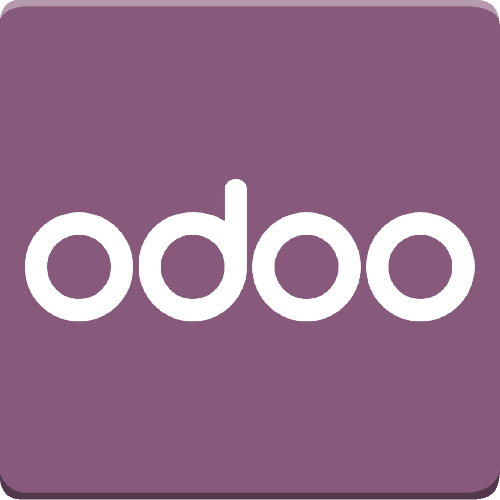ODOO TRAINING FOR OPERATIONAL MASTERY
Hack’celeration offers an Odoo training designed for businesses that want to fully leverage this powerful ERP without getting lost in its complexity. Our approach is 100% practical: you’ll learn to configure, customize, and optimize Odoo to centralize your sales, inventory, accounting, and project management operations. Whether you’re implementing Odoo from scratch or migrating from scattered tools, our Odoo agency gives you the methodology to build a coherent, scalable system. We train both beginners who want to learn Odoo step-by-step and experienced users looking to unlock advanced automations and integrations. By the end of this Odoo training, you’ll be autonomous in managing your instance, customizing workflows with automation tools like Make, and training your teams on operational best practices.



WHY TAKE AN ODOO TRAINING?
The Odoo training allows you to go from a tool “seen from afar” as overwhelming to an operational system that actually centralizes your business processes. Odoo is incredibly powerful, but its modular nature and extensive features can paralyze teams without proper guidance. Without structured training, you risk underutilizing modules, creating data silos, or building workflows that don’t scale. Our training transforms Odoo from a complex software into your central operational backbone.
- Master the core modules strategically: Learn which modules to activate first (CRM, Sales, Inventory, Accounting) and how to configure them to match your actual business processes, not generic templates.
- Build automated workflows across departments: Understand how to connect sales orders to inventory movements, invoicing to accounting, and projects to timesheets—eliminating manual data entry and errors.
- Customize without breaking your instance: Learn the difference between configuration, customization, and development. Know when to use Studio, when to create custom fields, and when to call a developer.
- Integrate Odoo with your existing stack: Connect Odoo to your email, e-commerce platform, payment gateways, and third-party tools using native integrations, APIs, or automation platforms like Make.
- Train your teams and ensure adoption: Get the communication framework to roll out Odoo across departments, create internal documentation, and ensure everyone actually uses the system consistently.
Whether you’re starting from scratch with a blank Odoo instance or inheriting a messy configuration, our Odoo training gives you the right reflexes to structure your data, automate intelligently, and scale without technical debt.
WHAT YOU’LL LEARN IN OUR ODOO TRAINING
MODULE 1: ODOO FUNDAMENTALS & ARCHITECTURE
Before diving into modules, you need to understand how Odoo actually works. This module covers the modular architecture, the difference between Community and Enterprise editions, and how to navigate the interface efficiently. You’ll learn the database structure, how apps interact with each other, and the philosophy behind Odoo’s design. We’ll set up a sandbox instance together and explore the Settings menu where 80% of configuration happens. By the end, you’ll know how to think in “Odoo logic” rather than fighting the system.
MODULE 2: CRM & SALES PIPELINE MASTERY
The CRM and Sales modules are where most businesses start, and for good reason—they drive revenue. You’ll learn to structure your sales pipeline stages, customize opportunity forms, automate lead scoring, and set up intelligent email templates and sequences. We’ll configure quotation templates, product catalogs with variants, and pricing rules. You’ll master how to track activities, schedule calls, and use the dashboard to forecast sales. This module focuses on making your sales process repeatable and data-driven, similar to what our HubSpot agency implements for clients.
MODULE 3: OPERATIONS, INVENTORY & FULFILLMENT
Once you’re selling, you need to fulfill. This module teaches you to configure warehouses, manage stock movements, set up reordering rules, and automate procurement. You’ll learn the difference between delivery orders, picking operations, and receipts—and how they connect to your sales orders. We’ll cover multi-location inventory, lot and serial number tracking, and how to handle dropshipping or manufacturing scenarios if relevant. By the end, your physical operations will be synchronized with your digital data in real-time.
MODULE 4: AUTOMATION & WORKFLOW OPTIMIZATION
Odoo’s power multiplies when you automate repetitive tasks. You’ll learn to use Automated Actions (server actions) to trigger emails, update fields, or create records based on conditions. We’ll explore scheduled actions for recurring tasks, email gateways to convert emails into leads or tasks, and webhooks for real-time integrations. You’ll build practical automations like: auto-assigning leads, sending payment reminders, updating inventory when sales orders are confirmed, and syncing data between modules. This is where Odoo becomes a true productivity multiplier, comparable to our automation agency services.
MODULE 5: INTEGRATIONS, API & EXTERNAL TOOLS
No ERP exists in isolation. This module covers how to connect Odoo to your ecosystem: email providers (Gmail, Outlook), payment gateways (Stripe, PayPal), e-commerce platforms (Shopify, WooCommerce), and accounting tools. You’ll understand Odoo’s REST API and XML-RPC for custom integrations, and how to use Make or n8n to build no-code bridges to tools like Slack, Google Sheets, or HubSpot. We’ll cover authentication, error handling, and data mapping. By the end, you’ll know how to make Odoo the central hub of your tech stack, integrating with database tools like Airtable or project management platforms like Notion.
MODULE 6: PRACTICAL IMPLEMENTATION & SCALING
The final module is a hands-on workshop where you apply everything. We’ll work through real-world scenarios: migrating data from spreadsheets, training non-technical users, handling multi-company configurations, and preparing for growth. You’ll learn how to audit your configuration, document processes, and create user roles and permissions that balance security with usability. We’ll discuss common pitfalls (over-customization, poor data hygiene) and how to avoid them. This module ensures you leave with a production-ready Odoo instance and the confidence to maintain it long-term.
WHY TRAIN IN ODOO WITH HACK’CELERATION?
AN EXPERT AGENCY THAT KNOWS THE REAL CHALLENGES OF BUSINESSES
At Hack’celeration, we’re not just trainers: we’re first and foremost an expert agency in automation, integrations, and growth. We’ve implemented Odoo for dozens of businesses—from 5-person startups to 200+ employee organizations—across industries like e-commerce, manufacturing, services, and SaaS. We know the difference between what the documentation says and what actually works in production. Our team has deep expertise in the entire operational stack: Odoo, HubSpot, Salesforce, Airtable, Notion, Make, n8n, and more. We’ve debugged broken Odoo instances, migrated businesses off legacy ERPs, and built custom integrations connecting Odoo to niche industry tools. When we teach you Odoo, we’re teaching you from battle-tested experience: the shortcuts that save hours, the configurations that prevent future headaches, and the integrations that actually scale. We don’t just show you how to click buttons—we teach you how to think strategically about your operational architecture, so Odoo becomes an asset, not a constraint.
Trusted by Leading Professionals Across Industries





FAQ – EVERYTHING YOU NEED TO KNOW ABOUT OUR ODOO TRAINING
What is the price of the Odoo training?
The Odoo training is currently offered 100% free as part of our early access program. We're building a community of Odoo power users and want to gather feedback to refine our content. The first registrants get lifetime access to all materials, including future updates. This won't stay free forever, so now is the perfect time to join.
How long does the Odoo training last?
The training is structured as 2-hour live sessions held weekly over 10 weeks. Between sessions, you'll have access to practical exercises and async support in our dedicated Slack channel. We also offer optional 1-hour office hours each week where you can bring your own Odoo instance and get personalized help. Total time commitment: about 3-4 hours per week.
Is the training live or recorded?
All sessions are live and interactive, with Q&A, screen sharing, and hands-on exercises. We believe learning Odoo requires real-time feedback. However, every session is recorded and available within 24 hours, so if you miss a class or want to review a concept, you have permanent access to the replays. You get the best of both worlds: live learning and on-demand flexibility.
How do I register for the Odoo training?
Registration is simple: fill out the online form at the bottom of this page with your name, email, company, and current Odoo usage level (beginner, intermediate, advanced). You'll receive an email confirmation within 48 hours with the start date, Zoom link, and pre-training setup instructions. Spots are limited to maintain a high-quality, interactive experience, so we recommend registering early.
Do I need an existing Odoo instance to follow the training?
No, you don't need anything to start. We'll guide you through setting up a free Odoo Online trial or a local development environment during Module 1. However, if you already have an Odoo instance—even a messy one—bring it! The training is designed to work with real-world scenarios, and we can help you clean up and optimize your existing setup. Many participants find the most value in applying concepts directly to their business.
Is this training suitable for non-technical users?
Absolutely. The training is designed for business users, not developers. You don't need coding skills to master Odoo's core modules, automations, and integrations. We use Odoo Studio, no-code automation tools, and visual configuration wherever possible. That said, we don't hide complexity—if a topic requires understanding APIs or data structures, we explain it clearly. By the end, you'll be technically literate enough to work alongside developers and know when to DIY vs. when to outsource.
How is this different from Odoo's official documentation?
Odoo's documentation is comprehensive but often generic and developer-focused. Our training is business-outcome driven. We teach you the 20% of features that solve 80% of problems, based on real client implementations. We skip theoretical edge cases and focus on practical, repeatable workflows. Plus, you get live Q&A, personalized advice, and a community of peers solving similar challenges. Think of it as the difference between reading a car manual and learning to drive with an instructor.
Can I use Odoo Community Edition instead of Enterprise?
Yes, and we'll explain the trade-offs. Community Edition is free, open-source, and perfectly viable for many businesses. Enterprise adds features like Studio, advanced reporting, and official support. During the training, we'll show both versions and help you decide based on your needs and budget. Most of what we teach—CRM, Sales, Inventory, Automations—works identically in both. We're version-agnostic and focus on principles, not just clicking buttons.
What if I need help after the training ends?
You'll have lifetime access to our alumni Slack channel, where you can ask questions, share tips, and get feedback from other graduates. We also host monthly office hours for alumni to troubleshoot specific issues. If you need deeper help—custom development, complex integrations, or full implementation support—we offer that through our agency services. Many training participants become long-term clients, and we offer graduates preferential rates.
Will this training cover Odoo for my specific industry?
The training focuses on universal Odoo principles that apply across industries: CRM, Sales, Inventory, Automations, Integrations. However, Odoo is highly customizable, and we'll show you how to adapt it to your context. If you're in e-commerce, we'll cover product variants and shipping integrations. If you're in manufacturing, we'll explore BOMs and work orders. If you're in services, we'll focus on project management and timesheets. During Module 6, we work on real use cases, so bring your industry challenges and we'll solve them together.
